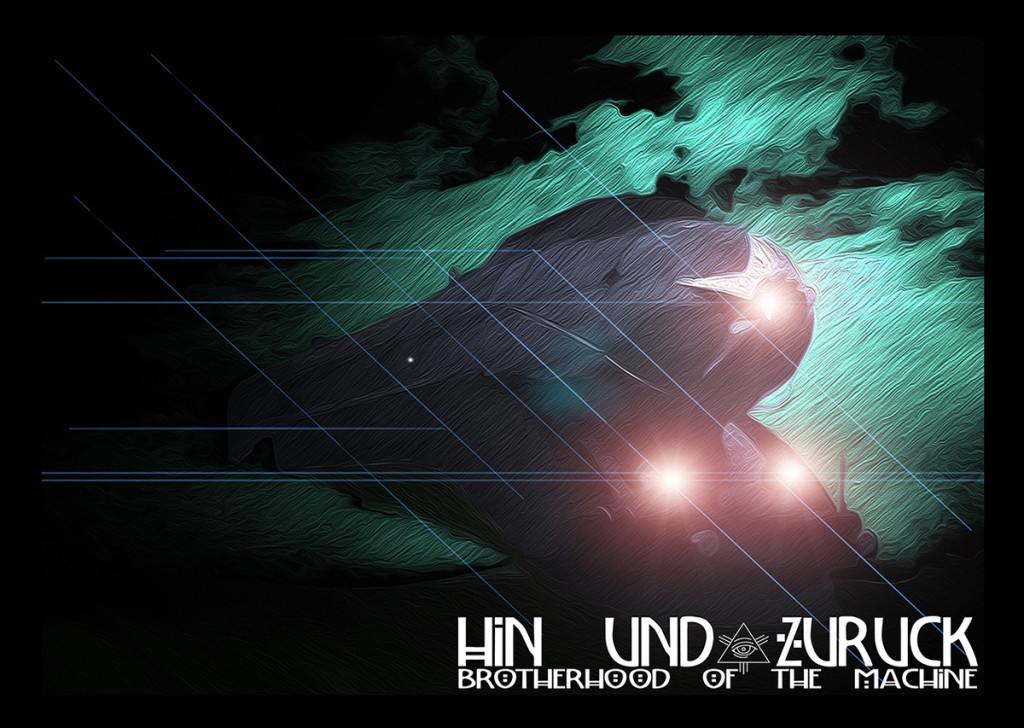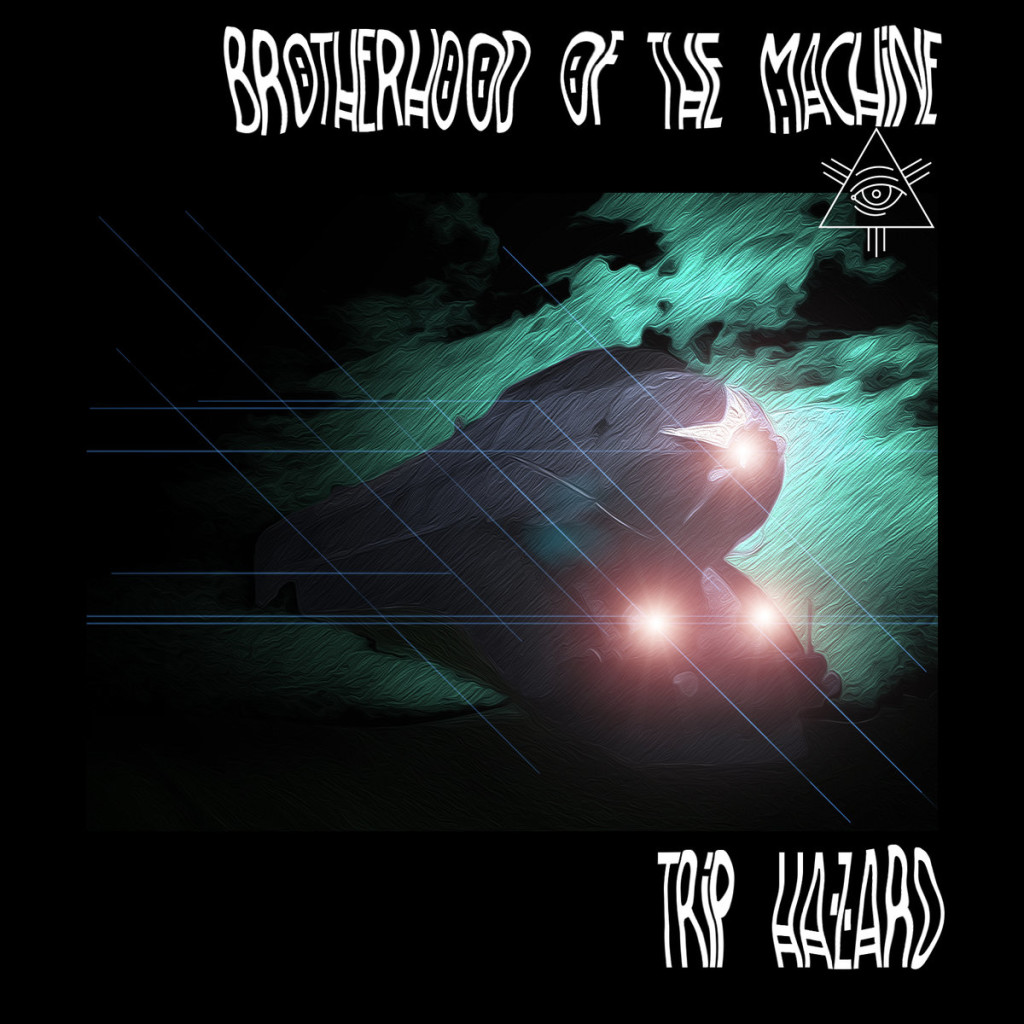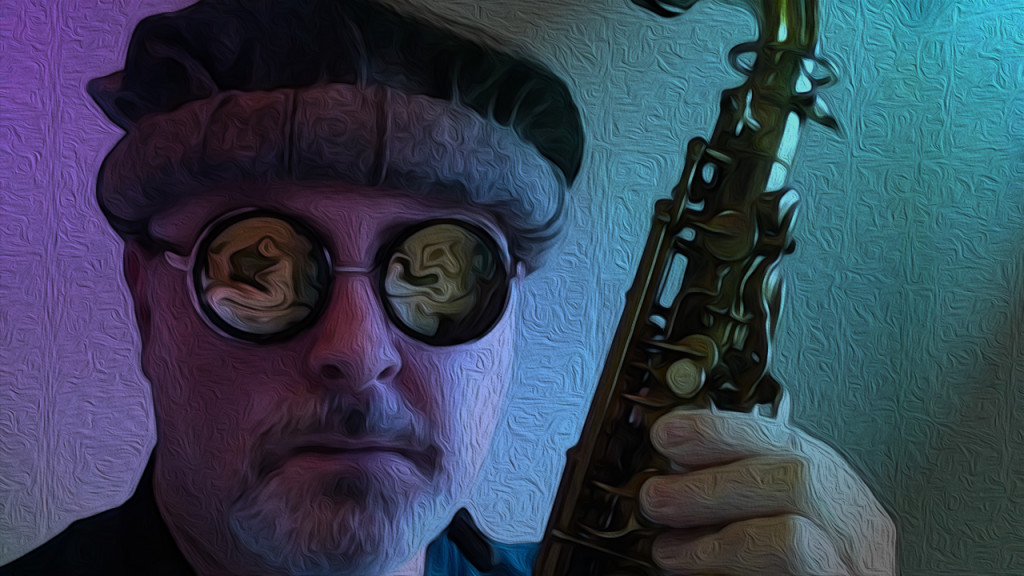TRIP WIZARDS:
A Review of TRIP HAZARD by
BROTHERHOOD OF THE MACHINE
This new release from daring and muscular new exponents of the underground music scene, Dave and John Francis’ Brotherhood of the Machine, contains three feverish demonstrations of post apocalyptic musical shamanism. Somewhere in one of England’s darker portals these brothers labour over a smouldering concoction of Hawkwind, Can, Amon Duul and Goblin, seasoning the mix, with splashes of guitar led heroics reminiscent of ZZ Top at their least mainstream, Brian Eno at his most experimental, and sound meisters such as Scott Walker and Tomas Koner, to make a kind of grizzled trance ritual, sure to set the next generation of rockers and ravers aflame. The three pieces of this album are soundtracks to new states of being, where the trip taken transports the listener to places of confrontation and resurgence. The opening Meditation of the Blue Serpent updates the diabolic fervour of Kenneth Anger’s infamous Lucifer Rising in musical form as well as conjuring mind pictures suitable for the accompaniment of Dario Argento, Gaspar Noe, or the films and images you capture in your own moments of darkness and disatisfation. There is the sense of the receiver of these sounds and compositions as being asked to unpeel themselves from the usual fixity of purpose achieved when listening in order to properly enter this music. It works in the same way that film can do, which is why I have referenced a few names, by appealing to a visceral sense of renewal and questioning: How may we participate? This music is too demanding to detach from in the way the everyday listener may do, confining it to the background, and is suitably mood based to make excess movement superfluous; rather, it is music to be too: music as an enhancer of consciousness, a drug that draws us into itself, rather than us subsuming it.
The 37 minute Hin und Zuruck is a heart ripping ride through a fresh internal landscape. As we travel through its darkness compelled by the power and drive of Dave Francis’s Keyboards and Sax and John Francis’ Guitar, we hear distant howls from the old Radiophionic workshop of Delia Derbyshire and White Noise albums. We are fuelled by the need to explore these toxic new lands and chased by sharp winds of accusation. The keyboards swirl and gather like constantly pecking birds of prey and the cold winds engendered by the relentless rhythms and occasional train sounds reveal the lack of safe shelter. Alien intrusion of some kind appears as the piece develops with eerie keyboard soundscapes scooping and sculpting the ground beneath the listener’s scrambling feet. The word listener is probably an incorrect noun in this case as the aforementioned receivers of this album need and should be called an audience. They should then behave as one, in the truest sense of that term, as there is a real drama here and the sense that something needs to be accomplished. By the end of closing track, Flying Saucer Patrol; we have a mission laid down by these brothers to both understand the reasons for the machines existence and to perhaps surrender to it. There is nothing we can do to escape the power and call of the primal forces that music unleashes and the length of the Hin Und Zuruk allows for and indeed enables an effective narrative to emerge.
The music herein is not tied to trend and clearly the underground world to which Brotherhood of the Machine belong, along with those crafty and artful exponents of electronica and alternative musics documented in publications like Wired magazine, is aimed at creating new ways to listen free of the constraints of the marketplace. This is a kind of music where the audience can collaborate with the creators through their levels of engagement. We are here to forge new standards of cultural exchange along with new disciplines of doing so, if culture is to survive and encounter new modes of expression, that are not necessarily tied to the needs imposed by entertainment. The hazard can only occur if you judge without understanding, if not the reason for each note or pattern, then the emergent feeling. This is music that asks us to participate in ways separate from the body. It is music as air to be inhaled and ingested. It is the smoke and the pill, the needle and burn in the brain.
Flying Saucer Patrol is the more conventional of the three pieces and shows that the Francis brothers are not just mere merchants of sound and atmosphere and there is something celebratory in its evocation of Roswellian skies, inviting us to accept that the darker forces we like to assign to fiction may in fact, have us as the players in a deeper theatre than we are currently aware of. Music is the ultimate trip as someone clichéd once said but it is true. The instrument is not just the machine for making the music but the carrier of both sickness and cure. From Gounod’s Faust to Geryon Throne’s mighty piece, Orthodox the trapped voices of the underground will not and cannot be silenced. This album summons the power of the core and thrusts it through the rock, roll and surface tension we all inhabit in our private hours, into the shaman’s dawn and after the Sorceror’s night. Support this music regardless of taste. Think of it as not the soundtrack for a film you’ll never see, but as that of one you did not know was there already, its sounds and inferred images boiling your blood and stoking your thought to a level of near exegesis. The feet may stay firm but the veins are dancing and the blackest compulsion is tunnelling through every fibre and channel of resistance. This music surges through the soul, turning those who embrace it into reverberant sound chambers. We are the radio and this is the frequency of future resistance to the norm. Put on your boots and start running. The hell hounds are coming and the hazards are yours to reject.
David Erdos 22/2/16

“”Hin und Zuruck” was written in a ten day fit of creative madness in 2014.


